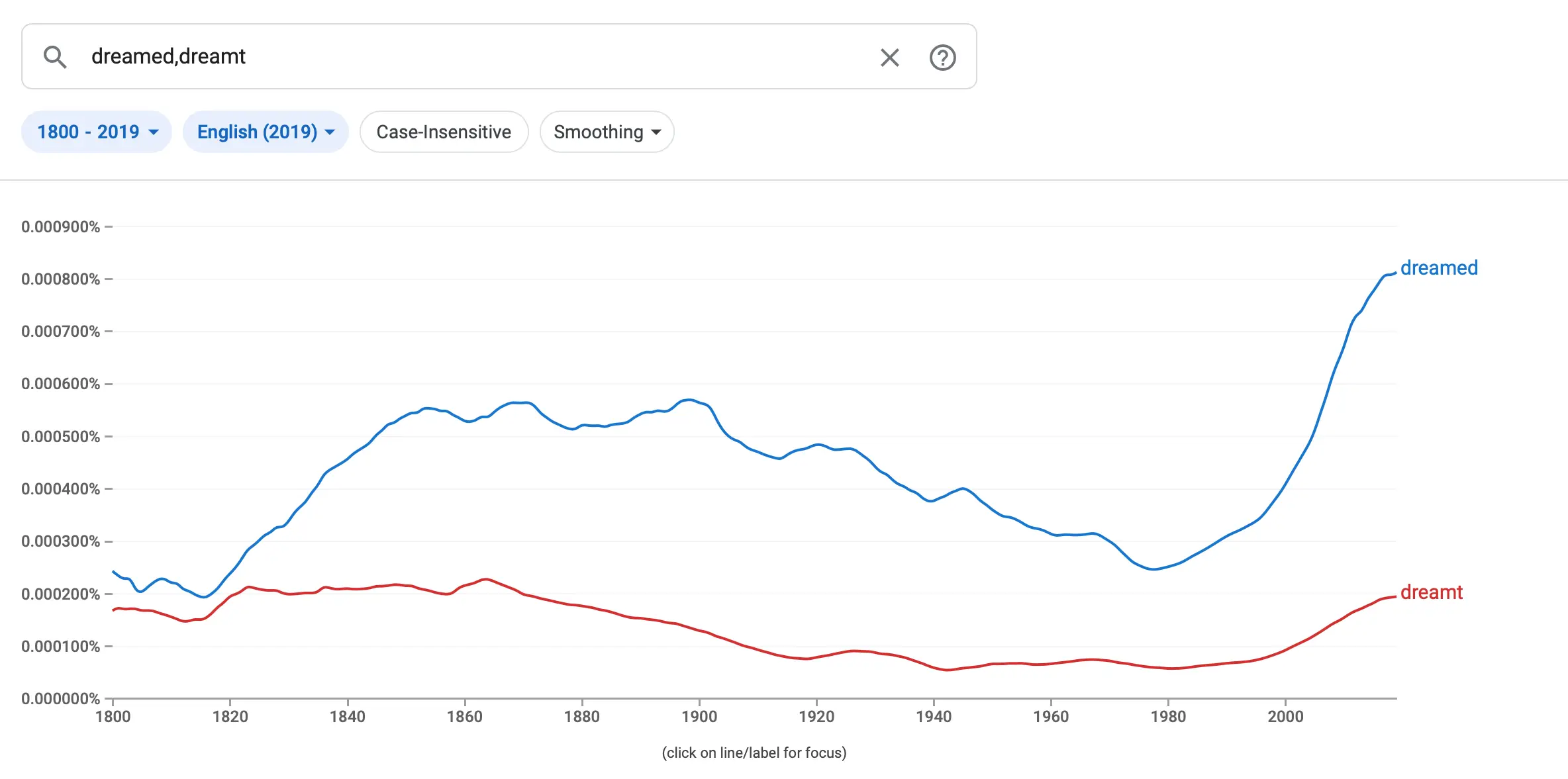Dreampt (or Dreampted)
(Updated October, 2022) We hate to burst your bubble, but “dreampt” is actually not a word (nor is dreampted!). The word you might be looking for is either “dreamed” or “dreamt.” Dreamed is the past form of the verb “to dream.” This form is more common and preferred. Dreamt is also correct but less widely used.

Dreamed vs. Dreamt
Unlike “dreampt” or “dreampted,” both dreamed and dreamt are acceptable as past tense meanings of the word “dream.” Dreamed can be used as a regular verb that end with “-ed.” On the other hand, dreamt is irregular and can follow verbs of that type. But is there a difference between the two?
Let’s take someone telling their dreams as an example. They may say something along the lines of “it was hot; we were walking along a huge beach, and . . .” Regardless of the story, we want to focus on what we call their story.
So what would you say they did last night. Would you say they dreamed or dreamt about the beach?
In the end, both answers are technically correct!
Both dreamed and dreamt have been used as the past tense of dreams throughout history. For instance, in Shakespeare’s Romeo and Juliet, he wrote, “I dreamt a dream tonight.”

In Shakespeare’s work, he typically opted for the word dream. However, it is important to realize that both are correct since at least the 14th century. While there has been some heated debate on which word is most correct, a myriad of famous writers such as Mark Twain, Walter Scott, Charles Dickens, And H.G. Wells have all used both interchangeably in their writing, depending on what they are specifically trying to say. With this, most people have moved away from using dreamt in recent times, choosing to use dreamed in more popular writing/speaking.
Which Is More Common?
According to Google’s Ngram, it seems that “dreamed” has been the preferred variation and is only widening the gap.

Media Examples
Now let’s take a look at how the media uses both variations:
The idea, dreamed up by Jehane Noujaim, is “to bring the world together through film”. – The Economist
He dreamed convenient acts of God”. – The New York Times
Brasilia’s designers, for example, dreamt of a prosperous, mobile society. – The Economist
“It is untrue from start to finish, and was quite likely dreamt up by the Labour press office. – The Guardian
As you can see, the Economist uses both variations.
What Are Regular And Irregular Verbs
Let’s take a quick detour into regular and irregular verbs, since we are discussing dreamed and dreamt. The vast majority of English verbs take the form of “-ed” in their past tense and participle forms. Dreamed is no different and uses the same rules for itself. Verbs like this are called “regular” and have a clear set of rules. On the other hand, verbs that tend to be more unique with varying rules are often called “irregular.” The Webster’s Dictionary lists around 300 verbs that are irregular, most of which are fairly common, simple, single-syllable words. Some of the best examples are the words: make, say, go, take, be, and get.
Both types of verbs have been common in English for years and years. However, most standard, irregular verbs have kept their special conjugations and meanings over time. However, there are still some examples of irregular verbs keeping other forms, such as the word “climb,” which can technically have a past tense of “clomb” in some English-speaking areas.
In contrast to this, some words can flip back to irregular conjugations. For example, the word “sneak” used to have a past tense of “sneaked,” however many places such as the United States have opted for “snuck” instead. While it isn’t necessarily pertinent to know for the word dream, it is still interesting to learn about the origins of regular and irregular verb placements throughout the world!
The Takeaway
So what have we learned (learnt)? Well, we know that “dreampt” is incorrect (so is dreampted or any other unholy variation!). The word you are looking for is dreamed or dreamt. Although there seems to be an upward trend in using dreamed as the past tense of a dream, both are still technically appropriate and can be used commonly in most settings. With this, simply use whatever form works best for you or the situation!
Further reading:






